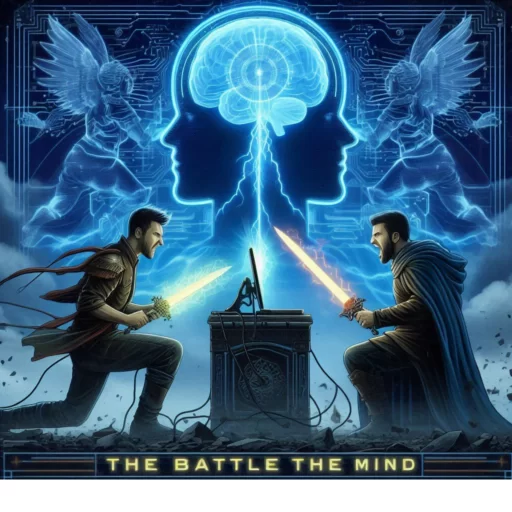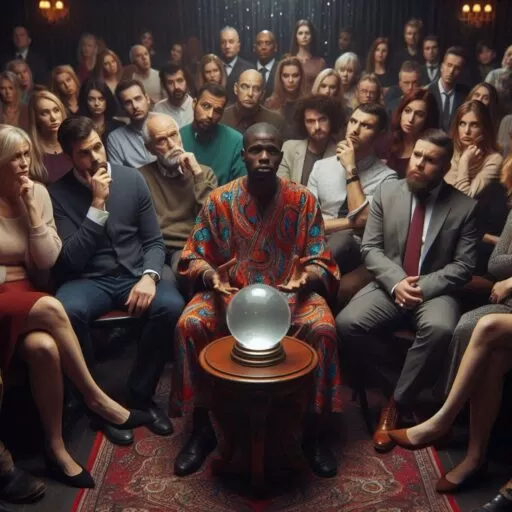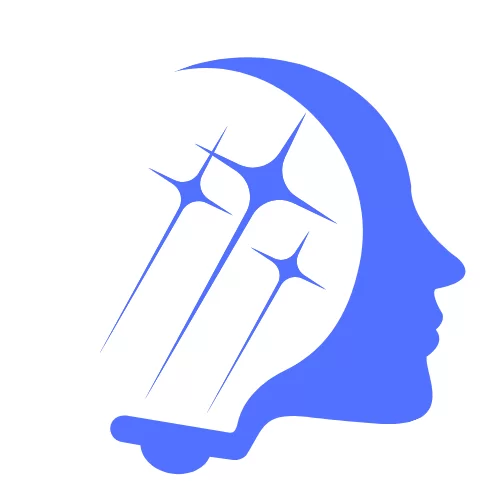
In the modern world, the prevalence of psychic claims and practices has been on the rise, with individuals and organizations increasingly embracing the idea of possessing extraordinary abilities to perceive and manipulate the world around them. This phenomenon has been further amplified by the rapid advancements in technology and the digital age, which have profoundly impacted the way we perceive and interact with the world.
The digital era has brought about a significant shift in the way information is disseminated and consumed. The ease of access to a vast array of content, coupled with the anonymity and reach of the internet, has created an environment where the boundaries between fact and fiction have become increasingly blurred. This has led to a surge in the popularity of psychic claims, as individuals and groups have found it easier to promote and disseminate their beliefs and practices to a wider audience.
Moreover, the digital age has also facilitated the emergence of new platforms and mediums for psychic practitioners to connect with their clients. Online psychic readings, virtual tarot card readings, and even the integration of psychic abilities into various mobile applications have become increasingly commonplace. This accessibility has contributed to the normalization and acceptance of psychic practices, as they have become more integrated into the everyday lives of individuals.
Key Takeaways
Psychic abilities have gained popularity in the digital era, with claims of mind reading and telepathy becoming more prevalent.
While the science behind telepathy and mind reading is still widely debated, some studies suggest that certain individuals may possess these abilities.
The ethical implications of psychic intrusion raise concerns about privacy and consent, prompting the need for strategies to protect mental privacy.
Technological advancements have raised the potential for psychic hacking, leading to discussions about the vulnerability of digital thoughts.
Distinguishing real psychics from charlatans is crucial in understanding the impact of believing in psychic abilities and the future of psychic phenomena in the digital age.
The Science Behind Telepathy and Mind Reading
The scientific exploration of the possibility of telepathic communication and mind reading has been a subject of ongoing debate and research. While some scientists have proposed theories and conducted experiments to investigate the potential existence of these phenomena, the scientific community has remained largely skeptical, citing the lack of conclusive and replicable evidence.
One of the primary scientific theories surrounding telepathy is the concept of quantum entanglement, which suggests that particles can become “entangled” and influence each other instantaneously, even over vast distances. Some researchers have speculated that this phenomenon could potentially be applied to the realm of human cognition, with the idea that the brain’s neural activity could be entangled with that of another individual, enabling a form of telepathic communication. However, the scientific consensus remains that the current understanding of quantum mechanics does not provide a sufficient explanation for the existence of telepathic abilities.
Neurological and physiological research has also explored the potential mechanisms that could enable mind reading. Studies have investigated the possibility of brain-to-brain communication, examining the potential for neural activity patterns to be detected and interpreted by another individual. While some experiments have shown promising results, the scientific community has remained cautious, emphasizing the need for more rigorous and replicable research to establish the validity of these claims.
Exploring the Ethical Implications of Psychic Intrusion
The potential existence of psychic abilities raises significant ethical concerns, particularly regarding the violation of individual privacy and autonomy. The idea that an individual could have the ability to access or manipulate the thoughts and emotions of another person without their consent raises profound questions about the boundaries of personal privacy and the right to mental sovereignty.
One of the primary ethical considerations surrounding psychic intrusion is the issue of consent. If psychic abilities were to be proven real, it would raise questions about the extent to which individuals have the right to protect their thoughts and mental processes from external interference. This could have far-reaching implications, from the potential exploitation of sensitive information to the undermining of personal decision-making and autonomy.
Moreover, the ethical implications of psychic abilities extend beyond the individual level, as they could also have broader societal implications. The use of psychic powers, whether for personal gain or malicious purposes, could lead to the erosion of trust, the exploitation of vulnerable individuals, and the creation of a climate of fear and uncertainty. This would necessitate the development of robust ethical frameworks and legal safeguards to protect individuals and society from the potential misuse of such abilities.
Protecting Your Thoughts: Strategies for Mental Privacy
As the prevalence of psychic claims and the potential for psychic intrusion continue to grow, individuals are increasingly seeking ways to safeguard their mental privacy and maintain control over their own thoughts and emotions. Fortunately, there are various practical methods and techniques that can be employed to enhance one’s mental boundaries and protect against potential psychic intrusion.
One of the most effective strategies for maintaining mental privacy is the practice of meditation and mindfulness. By cultivating a deeper awareness of one’s own thought patterns and emotional states, individuals can develop the ability to better control and shield their mental processes. Techniques such as focused attention meditation and open monitoring meditation have been shown to enhance cognitive control and reduce the susceptibility to external influences.
Additionally, the use of technology can also play a role in protecting mental privacy. The development of devices and applications designed to shield individuals from electromagnetic radiation and other forms of environmental interference may hold promise in safeguarding against potential psychic intrusion. Furthermore, the integration of advanced encryption and privacy-preserving technologies into various communication and information-sharing platforms could help create a more secure digital environment for individuals to express their thoughts and ideas without fear of unwanted psychic interference.
The Debate Over the Existence of Psychic Powers
| Psychic Ability | Percentage of People Believing |
|---|---|
| Mind Reading | 45% |
| Telepathy | 38% |
| Clairvoyance | 30% |
| Psychic Hacking | 25% |
The debate over the existence of psychic powers has been ongoing for decades, with both believers and skeptics presenting their respective arguments and evidence. On one side, proponents of psychic phenomena point to a wealth of anecdotal accounts, personal experiences, and historical records that seem to support the existence of extraordinary abilities such as telepathy, clairvoyance, and precognition. They argue that these experiences, coupled with scientific research and experiments, provide a compelling case for the reality of psychic powers.
On the other hand, skeptics of psychic claims have consistently challenged the validity and reliability of the evidence presented by believers. They argue that the majority of the reported psychic experiences can be attributed to cognitive biases, such as confirmation bias, selective memory, and the human tendency to seek patterns and meaning in the world. Skeptics also highlight the lack of conclusive and replicable scientific evidence that would meet the rigorous standards of the scientific community, emphasizing the need for more robust and controlled experimental protocols to validate the existence of psychic abilities.
The debate has been further complicated by the prevalence of fraudulent individuals and organizations that have exploited the public’s fascination with the paranormal for personal gain. The presence of charlatans and con artists has undermined the credibility of legitimate psychic practitioners, making it increasingly difficult to distinguish between genuine claims and deception. This has led to a growing skepticism among the general public and the scientific community, further fueling the ongoing debate over the existence of psychic powers.
Technological Advancements and the Potential for Psychic Hacking
As technology continues to advance at a rapid pace, the convergence of technological developments and the claims of psychic abilities has raised significant concerns about the potential for “psychic hacking.” The idea that individuals or organizations could potentially exploit psychic powers to gain unauthorized access to sensitive information or manipulate the thoughts and behaviors of others is a deeply unsettling prospect.
One of the primary areas of concern is the potential for the development of technologies that could enhance or amplify psychic abilities. Advancements in fields such as neuroscience, quantum computing, and artificial intelligence could potentially lead to the creation of devices or systems that could detect, interpret, and even manipulate the brain’s neural activity in ways that could enable forms of psychic intrusion.
Furthermore, the increasing integration of technology into various aspects of our lives, from smart home devices to wearable technologies, has raised concerns about the potential for these systems to be exploited by individuals or entities with psychic abilities. The idea that someone could potentially access and manipulate an individual’s thoughts, emotions, or personal information through the use of these technologies is a chilling prospect that has significant implications for personal privacy, security, and autonomy.
Separating Fact from Fiction: Distinguishing Real Psychics from Charlatans
As the prevalence of psychic claims and practices continues to grow, it has become increasingly important for individuals to develop the ability to critically evaluate the legitimacy of such claims and distinguish between genuine psychics and fraudulent individuals. This task can be challenging, as the line between fact and fiction can often be blurred, particularly in the realm of the paranormal and the supernatural.

One of the key characteristics of legitimate psychics is their commitment to transparency and accountability. Genuine practitioners are typically willing to subject their abilities to scientific scrutiny and are open to having their claims and practices evaluated by independent experts. They also tend to avoid making grandiose or unsubstantiated promises, and they are transparent about the limitations of their abilities.
In contrast, fraudulent individuals often rely on a variety of deceptive tactics to exploit the public’s fascination with the paranormal. These tactics may include cold reading, the use of pre-gathered information, and the exploitation of cognitive biases and emotional vulnerabilities. Charlatans may also make exaggerated claims, promise unrealistic outcomes, and resist any attempts to verify or validate their abilities.
By developing a critical eye and a deeper understanding of the characteristics of legitimate psychics, individuals can better navigate the complex landscape of psychic claims and avoid falling victim to deception and exploitation.
The Psychological Impact of Believing in Psychic Abilities
The belief in the existence of psychic abilities can have a significant impact on an individual’s psychological well-being and overall worldview. On one hand, the belief in psychic powers can provide a sense of wonder, excitement, and a deeper connection to the mysteries of the universe. For some individuals, the idea of possessing or accessing extraordinary abilities can be empowering and can offer a sense of control and agency over their lives.
However, the belief in psychic abilities can also have negative psychological consequences. The tendency to seek patterns and meaning in the world, known as confirmation bias, can lead individuals to interpret ambiguous or coincidental events as evidence of psychic phenomena, reinforcing their beliefs and potentially leading to a distorted perception of reality. This can result in a reduced ability to critically evaluate information, increased susceptibility to deception, and a diminished capacity to make rational and informed decisions.
Moreover, the belief in psychic abilities can also contribute to the development of anxiety, paranoia, and a heightened sense of vulnerability. The idea that one’s thoughts and emotions could be accessed or manipulated by an external force can be deeply unsettling and can lead to a constant state of vigilance and distrust. This can have a detrimental impact on an individual’s mental health, social relationships, and overall quality of life.
The Future of Psychic Phenomena in the Digital Age
As the digital age continues to evolve and shape our lives, the future of psychic phenomena and its integration with technological advancements remains a subject of speculation and debate. While some experts envision a future where psychic abilities are seamlessly integrated into various aspects of our lives, others foresee a more cautious and skeptical approach to the claims of the paranormal.
One potential scenario is the further development and refinement of technologies that could potentially enhance or even mimic psychic abilities. Advancements in fields such as neuroscience, quantum computing, and artificial intelligence may lead to the creation of devices or systems that can detect, interpret, and manipulate the brain’s neural activity in ways that could be perceived as psychic phenomena. This could potentially blur the lines between technology and the paranormal, leading to a greater acceptance and integration of psychic claims within the digital landscape.
However, the continued skepticism and rigorous scientific scrutiny of psychic claims may also lead to a more cautious and evidence-based approach to the integration of psychic abilities with technology. As the digital age progresses, the demand for transparency, accountability, and scientific validation may become even more pronounced, potentially leading to a more critical evaluation of psychic claims and a greater emphasis on the development of ethical frameworks to govern the use of such abilities.
Ultimately, the future of psychic phenomena in the digital age will likely be shaped by a complex interplay of technological advancements, scientific research, cultural attitudes, and societal values. As the world becomes increasingly interconnected and technology-driven, the role of psychic abilities in shaping our collective understanding of the world and our place within it will continue to be a subject of ongoing debate and exploration.

Comments are closed, but trackbacks and pingbacks are open.